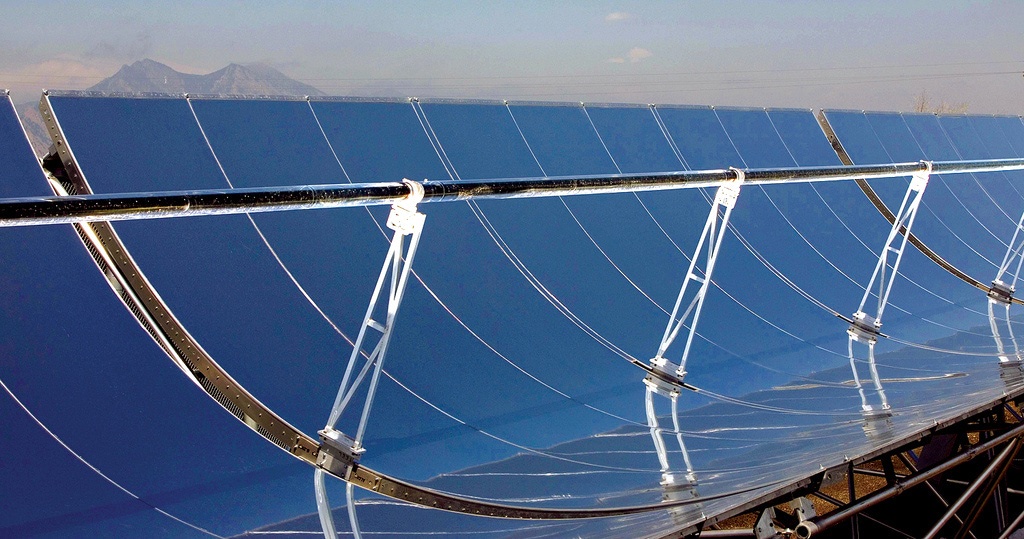- Undergraduate
Bachelor's Degrees
Bachelor of ArtsBachelor of EngineeringDual-Degree ProgramUndergraduate AdmissionsUndergraduate Experience
- Graduate
Graduate Experience
- Research
- Entrepreneurship
- Community
- About
-
Search
All Thayer News
Dartmouth Engineers to Help Create the Next Generation of High-Efficiency Solar Power Systems
Nov 19, 2018 | by Catharine Mayor Lamm
Dartmouth was selected to receive a $400,000 award from the U.S. Department of Energy (DOE) Solar Energy Technologies Office (SETO) to advance concentrating solar-thermal power (CSP) research and development. The Dartmouth project, led by engineering professor Jifeng Liu, will focus on a new type of solar absorber aimed at optimizing energy conversion efficiency.
Liu's team — which includes research scientist Xiaoxin Wang and engineering PhD students Eldred Lee and Can Xu — will be developing a solar absorber coating that not only converts over 95% of the absorbed energy into heat but also can endure long-term high-temperature conditions. These features represent the next generation of high-efficiency CSP systems.
"We are honored to receive this award to continue our research and technology transfer on air-stable, high-temperature, ultrahigh efficiency solar selective coatings," said Liu. "This project will make notable contributions to DOE's goal of 5¢/kWh for CSP systems by 2030, and expedite its commercial applications through collaborations with Norwich Solar Technologies, a local high-tech company led by Troy McBride Th'01 and Joel Stettenheim PhD'12."
CSP systems focus sunlight onto solar receivers, converting solar energy into thermal energy carried by heat transfer fluids to drive heat engines. The large-scale, cost-effective energy storage capability (for more than ten hours) of CSP systems complements solar cell panels with on-demand electricity even without sunlight.

New receiver design and materials for concentrating solar power by Professor Liu's team.
The solar absorber coating in CSP systems is an important component for maximizing energy absorption and minimizing thermal losses at high-temperatures. Existing solar absorbers do not provide high enough efficiency or stability at 1382 degrees Fahrenheit — a service temperature required by DOE. The novel nanoparticle-pigmented solar selective absorber coating developed by Liu's group uniquely addresses this challenge, offering both ultrahigh efficiency and long-term thermodynamic stability at this extreme temperature.
Dartmouth was selected as a part of DOE's FY2018 SETO funding program, an effort to invest in new projects that will lower solar electricity costs and support a growing solar workforce. Dartmouth's is one of several CSP projects that will develop materials and designs for collectors, power cycles, and thermal transport systems that can withstand high temperatures and resist corrosion.
The project also supports Dartmouth's commitment to advancing innovation in energy technologies and contributes to the mission of The Arthur L. Irving Institute for Energy and Society to drive "the creation of ideas, technologies, and policies that improve the availability and efficient use of energy for all people."
For contacts and other media information visit our Media Resources page.
